Want to be the first to watch / listen our next podcast?


Our Mission and Purpose



CAN'T WAIT FOR THE NEXT EPISODE?
SIGN-UP FOR A NOTIFICATION
Sign-up For An Email When We Publish Our Podcasts!
WATCH / LISTEN TO THESE PODCASTS NOW
SPONSORSHIP OPPORTUNITIESIf you would like to sponsor an episode or this whole site for a month, please contact us.
CONTACTS US
Our Shared Understanding:
a circular economy in the built environment

Featured Episodes
#10 - Malcolm Taylor - Digital Engineering
In this episode of the BimTube Podcast we speak with Malcolm Taylor, Specialist Advisor (Digital) at Crossrail International. He discussed the importance of quality, trustworthy information for decision-making on infrastructure engineering projects. Also, Malcolm reflects on how 'Project Information' becomes 'Asset Information' and the role that Common Data Environments (CDEs), Geographic Information Systems (GIS), 'BIM' and ISO 19650 series play to help manage this critical process.
Malcolm Taylor BEng, MBA, CEng, MICE, MIStructE, CDipA&F is a specialist in digitalisation and the creation, implementation and application of Project Information Management (PIM) on major projects. He is a leading exponent of the UK’s drive for PIM and Building Information Management (BIM) maturity in client organisations.
Recently, as Head of Technical Information at Crossrail for 10 years, Malcolm was responsible for the development of digital and technical information strategies as well as BIM, computer-aided design, document management, GIS, cyber security issues, and asset information management.
#3 - Mark Enzer, OBE FREng - The Impact of Digital Twins
In this BimTube Podcast we speak to Mark Enzer OBE, about the impact of Digital Twins, what these are and how a ‘National Digital Twin’ can help deliver and demostrate better outcomes for built and natural environments.
ABOUT MARK
Mark Enzer, OBE FREng
Overveiw to Mark: https://www.cdbb.cam.ac.uk/AboutDBB/directory/markenzer
Mark is a keen champion of innovation in the context of collaborative delivery models and he is particularly interested in transformational change in the infrastructure industry (including: digital transformation, Smart Infrastructure, low-carbon sustainable solutions, platform-based delivery and design for manufacture and assembly).
As Mott MacDonald’s Chief Technical Officer, he was accountable to the Executive Board for technical excellence across the Group. He is now a Strategic Advisor at Mott MacDonald. As the Chair of CDBB’s Digital Framework Task Group, Mark was contributing to the leadership of the National Digital Twin Programme.
Mark was the Digital Transformation workstream lead on “Project 13” for the Infrastructure Client Group, which represents the UK’s major infrastructure client organisations and he was the Lead Author of the Infrastructure Carbon Review, published by HM Treasury.
#5 - Melissa Zanocco OBE - Transforming Infrastructure
In this BimTube Podcast we speak to Melissa Zanocco OBE, about the Infrastructure Client Group (ICG); Project 13 and wider issues how transforming the built environment sector to produce better outcomes for people and nature.
About Melissa Zanocco OBE Melissa is Head of Programmes for the Infrastructure Client Group (ICG), as well as one of the instigators of Our Vision for the Built Environment, and is committed to transforming the built environment sector to produce better outcomes for people and nature. She is Co-Chair of both the Project 13 Adopter Community and the Digital Twin Hub Community Council as well as a member of the United Nations Industrial Development Organisation's Deep Decarbonisation Initiative, World Economic Forum Digital Twin Cities Project Global Advisory Committee and Construction Leadership Council Task Force. She was part of the UN Women UK delegation to the 66th session of the Commission on the Status of Women 2022.
CAN'T WAIT FOR THE NEXT EPISODE?
SIGN-UP FOR A NOTIFICATION
Sign-up For An Email When We Publish Our Podcasts!

BimTube is an initiative for educational and up-skilling purposes.
Please contact us if you would like to support us.